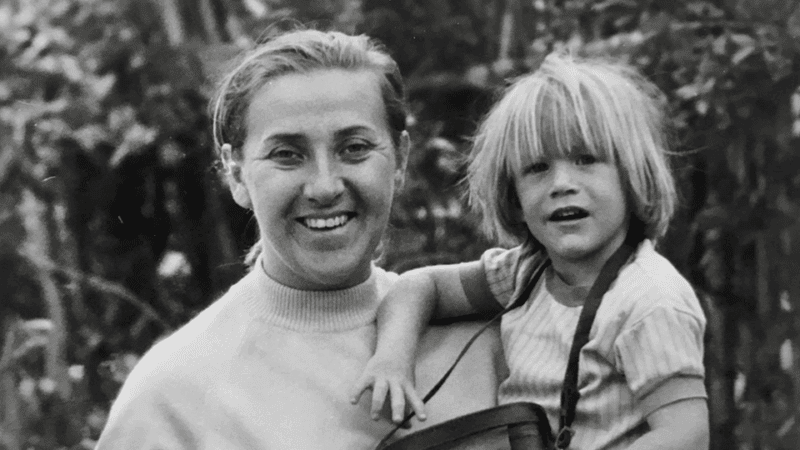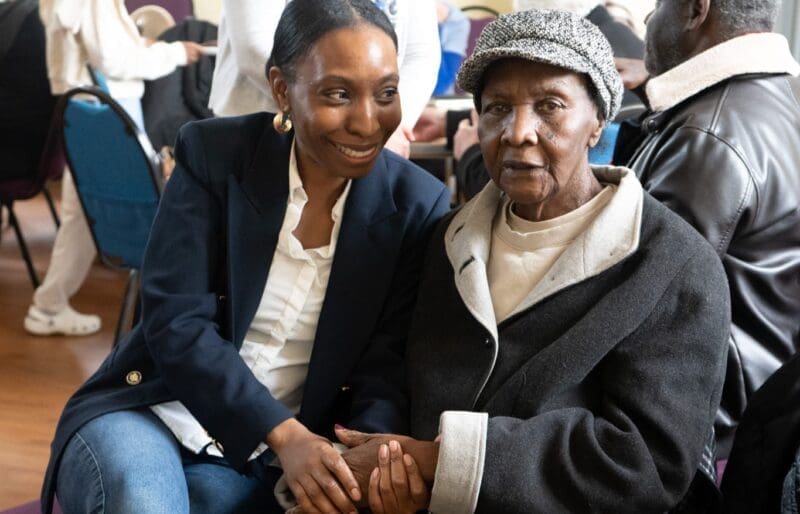
The uncomfortable reality of grief
Steve reflects on the grief journey since his mum, who lived with Alzheimer’s disease, died in 2022.
Many people with dementia should be able to receive hospice care as their condition deteriorates. Dementia specialist Admiral Nurse Sharron Tolman explains what this involves.
Hospice care aims to improve quality of life and wellbeing for people who have a terminal illness or a long-term condition that cannot be cured, also known as life-limiting. Hospices provide a variety of services including inpatient care, individualised support, care at home and bereavement support.
Hospice care, also known as palliative care, can be provided at any stage of a person’s condition, not just at the end of their lives. This can include symptom management and social, practical, emotional and spiritual support. It aims to help people to live as well as they can to the end of their lives, however long that may be.
Although dementia is a progressive neurological condition and the leading cause of death in the UK, it is often not recognised as life-limiting. People with dementia may also have other illnesses and families are often living with uncertainty and anxiety about the future.
Palliative care improves the quality of life for people with life-limiting conditions and their families, who often face challenges associated with the diagnosis and prognosis. A palliative approach is an integral part of good dementia care, from the time of diagnosis, with early identification, assessment and treatment of problems which may be physical, psychosocial or spiritual.
Recognising the need for high quality, personalised end of life dementia care and support, Dementia UK has collaborated with several hospice, palliative and end of life service providers across the UK to help improve palliative and end of life care for people living with dementia and their families.
There are now 21 dementia specialist Admiral Nurses working specifically in the hospice and palliative care sector, with more in development. Many Admiral Nurses working in other care sectors such as care homes, hospitals and in the community also support families affected by dementia towards end of life. They support families to understand the impact of dementia and the complexities of change as the condition progresses.
A key aspect of good end of life care is giving people with dementia and their families opportunities and support to talk and share their wishes and preferences and what matters to them.
However, future care planning is often approached too late. This can cause significant distress to families who may be left to make important decisions at a time of crisis.
Reducing stress and enhancing comfort and quality of life is essential to good dementia care. A continuous approach to future planning is needed, alongside more open conversations about death and dying to help people understand what support and services are available at the end of life.
People with dementia and their families have their own unique needs, and understanding these individual needs is essential for the professionals who support them as their condition progresses and at the end of life.
As well as working directly with families affected by dementia, Admiral Nurses can support the education, knowledge and best practice of others involved in providing palliative dementia care. This may include support with communication, decision-making, care goals and advance planning, comfort care, treatment of symptoms and timely recognition of dying.
A dementia specialist Admiral Nurse supported a gentleman who had been looking after his wife, who had dementia, at home for five years. He was the sole carer, providing all care and support with daily living.
The man’s wife was beginning to have difficulty with eating and drinking, and her mobility was deteriorating. She was becoming more withdrawn and less communicative. He was worried and struggling, not understanding what was happening.
The Admiral Nurse helped the carer to understand the changes he was seeing, explaining how he could support his wife with eating and drinking small amounts. The nurse gave advice on communicating in different ways as his wife’s verbal communication deteriorated so he could still feel connected with her.
The nurse also helped to coordinate care so the husband received the practical support he needed to maintain the best possible quality of life for him and his wife, and ensured his wife received the care that he couldn’t provide himself.
The Admiral Nurse provided the husband with time to talk, discuss his worries and concerns and think about the future, with open conversations about death and dying and what mattered to them both. It was hugely important to the husband to be able to care for his wife in their own home until the end of her life, and with support, she was able to have a good death at home.

Steve reflects on the grief journey since his mum, who lived with Alzheimer’s disease, died in 2022.

We explain what dementia support groups and cafés are and how they can benefit people affected by dementia.

Marianne Jones is a journalist and podcaster, and an ambassador for Dementia UK. She is proudly presenting the second season of our podcast, My life with Dementia.